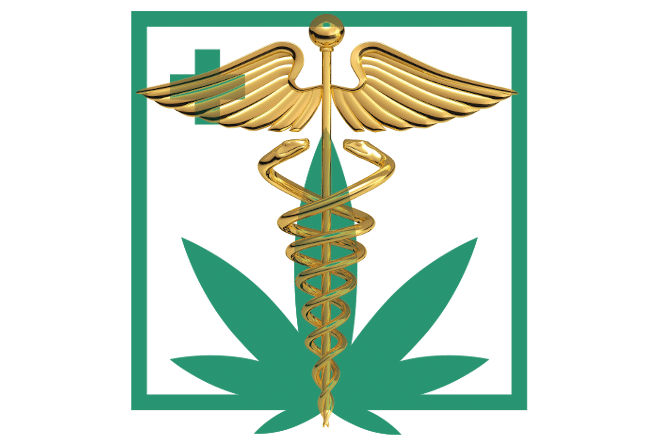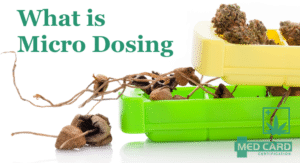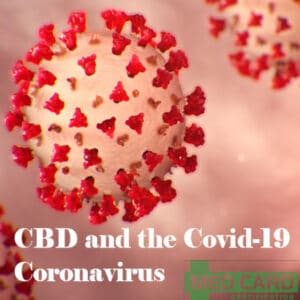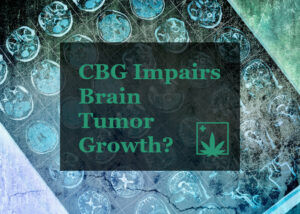
Treating Causalgia with Medical Marijuana – How It Helps
- Causalgia, or CRPS II, is a condition that causes chronic pain in the extremities resulting from nerve damage.
- Compounds found in medical marijuana have been shown to help reduce pain signaling in patients suffering from all types of neuropathic pain.
- An array of cannabis strains and cannabis-infused medications suitable for the treatment of causalgia are available at medical marijuana dispensaries nationwide.
Causalgia is a rare chronic pain syndrome. Inflammation is the most common cause of pain. However, causalgia is not the result of inflammation but rather of injury to the peripheral nerve. The peripheral nerve runs from the brain through the spine to the arms and legs.
Causalgia causes pain signals to be relayed to the brain. The pain is typically localized to the arm or the leg served by the injured nerve. In some cases, causalgia can also cause swelling or stiffness of the affected limb, plus changes in skin temperatures and abnormal sweating in the injured area.
The condition is also known as Complex Regional Pain Syndrome Type II (CRPS II).
How does medical marijuana help causalgia patients?
Marijuana refers to the resinous female flowers of the cannabis plant. Essentially, medical marijuana helps patients suffering from causalgia by reducing pain signaling caused by nerve damage. However, when used properly, marijuana also offers an array of additional health benefits.
Some of the welcome side effects of treating pain with medical marijuana include improved sleep, reduced anxiety, improved mood, and increased energy and appetite. Marijuana is also great for treating nausea which can sometimes accompany chronic pain.
Alternatively, improper use of medical marijuana such as excessive doses and chronic abuse can result in intoxication and lethargy.
How does medical marijuana help treat causalgia?
The secret to marijuana’s ability to reduce pain lies in the resins that are produced in marijuana. A class of compounds called phytocannabinoids (or cannabinoids produced in plants) has the ability to mimic compounds produced naturally by our own bodies called endocannabinoids. Synthetic cannabinoids such as Marinol or dronabinol are also sometimes prescribed for pain.
The human endocannabinoid system or ECS is responsible for managing an array of bodily functions including pain signaling.Cannabinoids are known to inhibit pain neurotransmission to areas of the spinal cord that receive sensory information.
In a report on a 2010 clinical trial published in the Canadian Medical Association Journal, twenty-three patients suffering from post-surgical neuropathic pain were treated with varying strengths of medical marijuana. The authors of the study commented: “A single inhalation of 25 mg of 9.4% tetrahydrocannabinol herbal cannabis three times daily for five days reduced the intensity of pain, improved sleep and was well tolerated. Further long-term safety and efficacy studies are indicated.”
In a study conducted in 2012, researchers evaluated the efficacy of vaporized cannabis for treating neuropathic pain. According to the report in the Journal of Pain, 39 patients suffering from neuropathy were treated with cannabis. The results clearly showed that cannabis “may present an effective option for patients with treatment-resistant neuropathic pain.”
Another study published by the American Pain Society in 2013 corroborated those results. Many of the participants in this study had experienced less-than-satisfactory results with traditional protocols for nerve pain.
How is medical marijuana used to treat causalgia?
In the study mentioned above, participants were treated with inhaled cannabis rather than with a cannabinoid-infused pill. Inhalation of cannabinoids offers the fastest and most potent relief for neuropathic pain. Inhalation methods include smoking or vaporizing dried cannabis flower or cannabis concentrates, and the use of cannabinoid-infused inhalers.
However, not all patients are willing to choose one of these inhaled delivery methods. For these patients marijuana dispensaries nationwide offer a wide range of cannabis-infused products.
Oral delivery methods such as tinctures, oils, capsules, and edibles offer delayed relief. However, on the upside, these methods are far more convenient while offering accurate dosing.
The cannabis strain or formula used to treat causalgia is as important as the delivery method. This is because cannabis produces several different cannabinoids. Each type of cannabinoid produces a particular set of effects. And the extent of these effects often varies from patient to patient.
Two of the most common cannabinoids are tetrahydrocannabinol (THC) and cannabidiol (CBD). THC is the cannabinoid produced in marijuana that causes a high when used in sufficient quantities. CBD, on the other hand, is non-intoxicating.
THC and CBD stimulate different types of cannabinoid receptors. While THC stimulates receptors in the brain and nervous system, CBD stimulates receptors on the surface of cells throughout the body.
Some causalgia patients find that THC offers the most pain relief. Others find that CBD alone works well. Oftentimes patients find that a particular mixture of THC and CBD works best. Some experimentation might be required to determine the ideal ratio of cannabinoids for treatment of causalgia.
In addition to THC and CBD there are also several minor cannabinoids including cannabigerol or CBG and cannabinol or CBN, among others.
As mentioned earlier, in addition to reducing neuropathic pain, medical marijuana provides an array of additional health benefits. For example, CBG is well-known for its exceptional ability to reduce anxiety in some patients. And CBN is renowned for its sedative effects. Some patients choose to keep a variety of strains or formulas on hand for different times of day or different activities.
Conclusion
The use of medical marijuana in treating neuropathic pain resulting from causalgia is increasing. More and more evidence for its efficacy is being revealed each year.
When used properly, medical marijuana offers a safe and natural alternative to potentially dangerous prescription medications traditionally used to treat neuropathy.
Patients suffering from causalgia or any form of chronic pain are advised to treat their condition under the care of a knowledgeable and qualified medical marijuana doctor. Patients should not be self-medicating.

Sign Up for Medical Cannabis Today!
For potential patients, if you’re ready, we make it easy to connect with a medical marijuana doctor nearby or online. If you are interested in getting certified, please fill out the MMJ patient registration form below and press submit to get started. See if you qualify today!

MedCard Registration Form


Medical Marijuana Links:
Sources And Additional Reading
- Low Dose Vaporized Cannabis Significantly Improves Neuropathic Pain
- CRPS, another case for Medicinal Cannabis
- Medical Marijuana to Treat CRPS Pain
- CBD and Medical Marijuana Options for Chronic Pain Conditions
- Medicinal Cannabis and Painful Sensory Neuropathy
- Smoked cannabis for chronic neuropathic pain: a randomized controlled trial
- Role of the Cannabinoid System in Pain Control and Therapeutic Implications for the Management of Acute and Chronic Pain Episodes
- Smoked medicinal cannabis for neuropathic pain in HIV: a randomized, crossover clinical trial
- Efficacy of Cannabis-Based Medicines for Pain Management: A Systematic Review and Meta-Analysis of Randomized Controlled Trials
- Inhaled Cannabis for Chronic Neuropathic Pain: A Meta-analysis of Individual Patient Data
- Systematic review: efficacy and safety of medical marijuana in selected neurologic disorder
- A Cost-Effectiveness Model for Adjunctive Smoked Cannabis in the Treatment of Chronic Neuropathic Pain
















